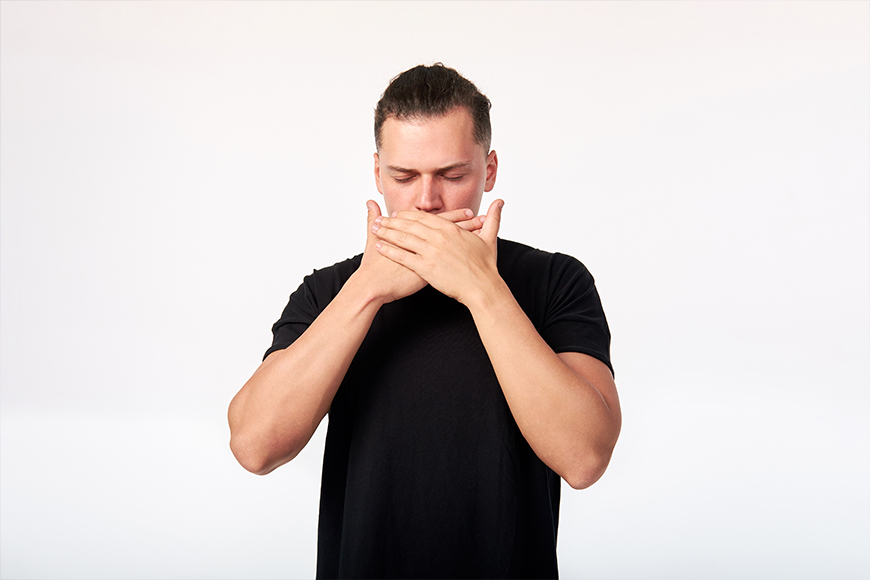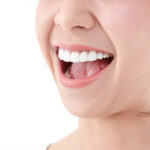That awkward moment when you realize your breath might not be as fresh as you’d hoped is something most of us have experienced. Bad breath, scientifically known as halitosis, is a common concern that can impact your confidence and social interactions. But what exactly is the cause of bad breath? And more importantly, what can you do to eliminate it for good?
At Madison Dentistry & Implant Center, we understand the impact of oral health on your overall well-being, and that includes having fresh, confident breath. This comprehensive guide delves deep into the various causes of bad breath, offering practical solutions and expert advice to help you achieve a healthier and more pleasant mouth. Get ready to uncover the secrets to banishing bad breath and reclaiming your fresh smile!
The Primary Culprit: Oral Hygiene Neglect
The most frequent offender behind bad breath is inadequate oral hygiene. When you don’t brush and floss regularly, food particles and bacteria accumulate in your mouth. These bacteria break down food debris, releasing foul-smelling sulfur compounds – the primary culprits behind that unpleasant odor.
- Plaque and Tartar Buildup: Plaque, a sticky film of bacteria, constantly forms on your teeth. If not removed daily, it hardens into tartar (calculus), which is much more difficult to eliminate and provides a rough surface for more bacteria to cling to.
- Food Trapped Between Teeth: Leftover food particles lodged between your teeth provide a feast for bacteria, leading to odor production. Flossing is crucial for removing these trapped particles.
- The Importance of Tongue Cleaning: Your tongue’s textured surface can harbor a significant amount of bacteria and dead cells. Neglecting to brush or scrape your tongue can contribute significantly to bad breath.
Dietary Influences: What You Eat Matters
Certain foods are notorious for causing temporary bad breath. These foods contain sulfur compounds that are released into your bloodstream and eventually exhaled through your lungs.
- Garlic and Onions: These pungent vegetables are classic culprits. Their strong sulfur compounds linger in your system long after you’ve eaten them.
- Spicy Foods: Some spices can also contribute to bad breath due to their volatile compounds.
- Coffee: While a morning staple for many, coffee can dry out your mouth, reducing saliva production. Saliva helps to wash away food particles and neutralize acids, so a dry mouth can exacerbate bad breath.
- Sugary Foods: Bacteria thrive on sugar. Consuming sugary snacks and drinks can fuel bacterial growth and increase odor production.
Dry Mouth (Xerostomia): A Breeding Ground for Bacteria
Saliva plays a vital role in keeping your mouth clean by washing away food particles and neutralizing acids produced by bacteria. When saliva production is reduced, a condition known as dry mouth or xerostomia, bacteria can flourish, leading to bad breath.
- Causes of Dry Mouth: Dry mouth can be caused by various factors, including certain medications (antihistamines, diuretics, antidepressants), medical conditions (Sjogren’s syndrome, diabetes), dehydration, mouth breathing, and aging.
Underlying Medical Conditions: When Bad Breath Signals More
In some cases, persistent bad breath can be a symptom of an underlying medical condition.
- Sinus Infections and Postnasal Drip: Infections in the sinuses can lead to the production of mucus that drips down the back of the throat, providing a breeding ground for odor-causing bacteria.
- Respiratory Tract Infections: Infections in the lungs or throat can also contribute to bad breath.
- Gastrointestinal Issues: In rare cases, conditions like acid reflux or H. pylori infection can cause bad breath due to the regurgitation of stomach contents or the production of specific gases.
- Diabetes: Uncontrolled diabetes can lead to a condition called ketoacidosis, which can produce a fruity or acetone-like breath odor.
- Kidney or Liver Disease: These serious conditions can sometimes cause distinctive breath odors due to the buildup of waste products in the body.
Tobacco Use: A Major Offender
Smoking and using tobacco products are significant contributors to bad breath.
- Chemicals in Tobacco: Tobacco smoke contains numerous chemicals that can leave a lingering foul odor in the mouth and lungs.
- Reduced Saliva Flow: Smoking can also reduce saliva production, exacerbating dry mouth and promoting bacterial growth.
- Gum Disease: Tobacco use is a major risk factor for gum disease (periodontitis), a severe infection of the gums that can cause significant bad breath.
Dentures and Oral Appliances: Areas for Bacteria to Hide
Dentures, retainers, and other oral appliances can trap food particles and bacteria if not cleaned properly.
- Importance of Cleaning: Just like your natural teeth, oral appliances need regular cleaning to prevent the buildup of plaque and odor-causing bacteria.
Medications: A Less Obvious Cause
Certain medications can contribute to bad breath as a side effect.
- Reduced Saliva: As mentioned earlier, some medications can cause dry mouth, leading to increased bacterial growth and bad breath.
- Metabolic Byproducts: Some drugs are metabolized in the body and release volatile compounds that can be exhaled, causing a specific odor.
The Role of Mouthwash: A Temporary Fix, Not a Cure
While mouthwash can temporarily mask bad breath with its minty or antiseptic ingredients, it doesn’t address the underlying causes.
- Short-Term Solution: Most over-the-counter mouthwashes primarily work by killing some bacteria and freshening breath temporarily. However, the effects are often short-lived.
- Alcohol-Based Mouthwashes: Some mouthwashes contain alcohol, which can actually dry out the mouth, potentially worsening bad breath in the long run.
Professional Help: Your Partner in Fresh Breath at Madison Dentistry & Implant Center
Maintaining fresh breath is an ongoing effort, and regular dental checkups are an essential part of this. At Madison Dentistry & Implant Center, our experienced dental professionals can help identify the causes of your bad breath and recommend personalized treatment plans.
- Comprehensive Oral Examination: We will conduct a thorough examination of your teeth, gums, and oral tissues to identify any signs of gum disease, tooth decay, or other issues that could be contributing to bad breath.
- Professional Cleaning: Regular professional cleanings remove plaque and tartar buildup that you can’t eliminate with brushing and flossing alone.
- Personalized Advice: Our team can provide tailored advice on improving your oral hygiene techniques, dietary modifications, and other strategies to combat bad breath.
- Treatment of Underlying Issues: If your bad breath is linked to an underlying dental problem like gum disease, we offer comprehensive treatment options to restore your oral health and eliminate the odor.
Conclusion: Cause of Bad Breath
Bad breath is a common problem with a multitude of potential causes, ranging from simple oral hygiene neglect to underlying medical conditions. By understanding these causes and implementing the actionable tips outlined in this guide, you can take significant steps towards achieving fresher breath and a healthier mouth.
Remember, a consistent and thorough oral hygiene routine, a balanced diet, and regular dental checkups at Madison Dentistry & Implant Center are your strongest allies in the fight against bad breath. Don’t let bad breath hold you back any longer. Take control of your oral health, embrace the confidence that comes with fresh breath, and enjoy every interaction without hesitation. Schedule an appointment today!




